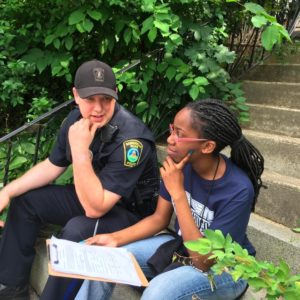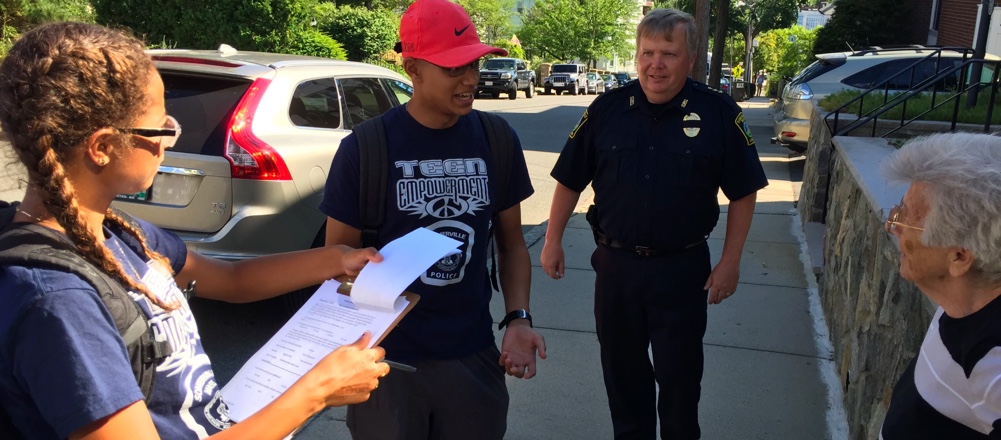Civic engagement happens wherever there are people.
Yet, some communities have a strong culture of engagement where residents, organizations, government and others recognize and value engagement and community-decision making. In these communities, we see fewer intractable problems and a higher quality of life. Communities with inclusive civic engagement—where everyone has a place at the table to define, direct and implement public services and amenities—experience greater equity, display greater civic pride and exhibit stronger civic responsibility.
Theodore Roosevelt, one of the founders of the National Civic League, called on Americans to “be actors, and not merely critics of others” at our first annual Conference on Good City Government. Roosevelt and about a hundred other civic leaders came together in 1894 to form what was then known as the National Municipal League, ushering in more than over 100 years of municipal civic reform. These principles continue to guide our work. We believe that, through inclusive civic engagement, the many parts of a community—government, business, schools, residents, nonprofit agencies, faith-based organizations and others—can work together to address public needs and desires. Whether it’s economic development, safety, health, education, environmental quality or other matters, civic leadership and community partnerships can lead to lasting solutions that represent the values and desires of each particular community.
The health of a democratic society may be measured by the quality of functions performed by private citizens. Alexis de Tocqueville, Democracy in America
It was these same themes that Alexis de Tocqueville identified in Democracy in America when he wrote that “the health of a democratic society may be measured by the quality of functions performed by private citizens,” and marveled at the ease in which the American people worked together for the common good.

The City of Somerville hosts walking dialogues with police, youth, and community. Photo Credit: Jackie Rossetti, Deputy Director of Communications, City of Somerville
De Tocqueville’s warning that the health of democratic society lays in the functions performed by its citizens is echoed by the League’s experience. So in the 1980s that the National Civic League coined the phrase, “civic infrastructure” and created a civic index to describe and measure the essential elements of community in which everyone has a role in decision-making and public problem-solving. These principles continue to guide our work, namely that, through inclusive civic engagement, the many parts of a community—government, business, residents, nonprofit agencies, faith-based organizations and others—can work together to address public needs and desires. Whether it’s economic development, safety, health, environmental quality or other matters, civic leadership and community partnerships can lead to lasting solutions that best represent the values and desires of each particular community.
Few public officials would ever claim that government can build a great community or solve any problem by itself. Anthropologist Margaret Mead once said that we should “never depend upon institutions or government to solve any problem. All social movements are founded by, guided by, motivated and seen through by the passion of individuals.” Institutions and governments cannot solve community issues on their own – that is the role of residents working hand in hand with one another and leveraging the strength of local groups, associations and institutions. Community is a joint endeavor. Great communities have at their core, strong, inclusive, civic engagement that capitalizes on the ideas and talents of all members of the community to ensure the common good and create lasting health and prosperity for all.

Somerville, MA hosts “Walking Dialogues with Police”, working with youth and residents to tackle community issues. Photo Credit: Jackie Rossetti, Deputy Director of Communications, City of Somerville
Our View of Engagement
The National Civic League views engagement as more than presenting information or having people respond to questionnaires (though both are important); instead, we promote efforts that seek to listen to, and learn from, residents in ongoing conversations and leverage those insights to shape the way programs are administered, designed and executed.
We are working to set a different expectation for engagement. “We tried to engage ‘them,’ but no one showed up” is not a high enough standard. Engagement of racial and ethnic minorities and others traditionally excluded from decision-making conversations is not “going above and beyond.” It must become the new expectation; the baseline for legitimate engagement efforts.
At the National Civic League, we advance inclusive civic engagement through our community assistance programs, including tools, trainings and facilitation services, our award and recognition programs, and nationally recognized research and publications.



